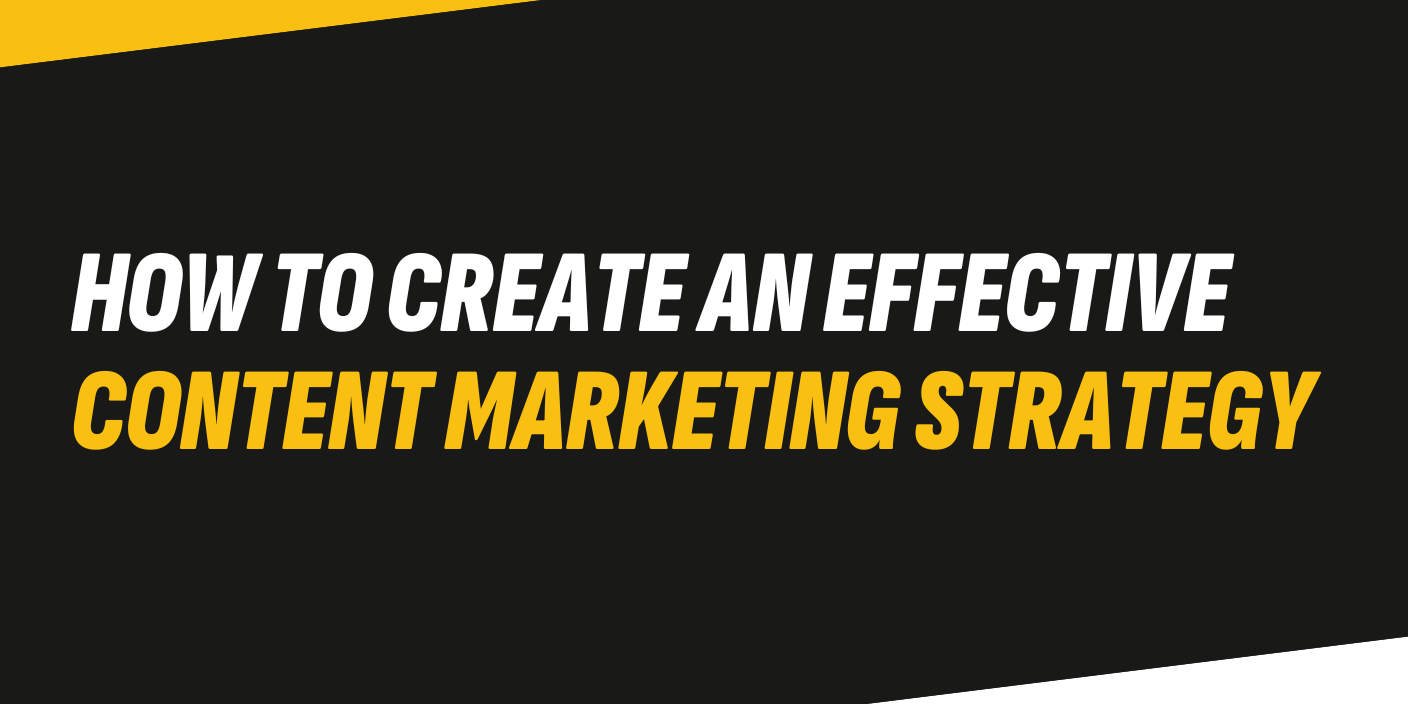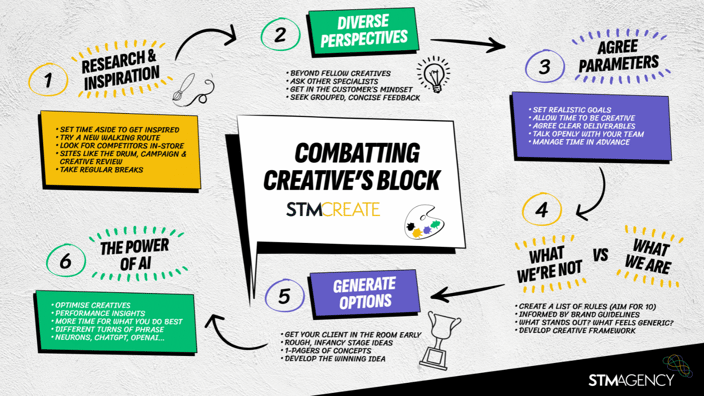How to create an effective content marketing strategy

Bill Gates first wrote the famous phrase “content is king” all the way back in 1996, and almost 30 years later, it’s still commonly used by marketers everywhere.
But what does it actually mean to create, execute and – most importantly – get results from a content strategy? And why is content strategy important? Read on for answers to those big questions including what a content strategy is, how to create a winning framework, and the tactics and plan you need to bring it to life.
What is a content strategy?
Before we get to grips with content strategy, it’s worth taking a step back and looking at what content actually is. It fills our newsfeeds, browsers and inboxes every single day, but as the term covers everything from TikTok videos and memes to white papers and blogs, it can be difficult to define.
For content as a form of digital marketing, it’s important to consider four key elements:
- Information: the message your content is comprised of. This can be factual, practical, entertaining or all of the above.
- Form: how it will be consumed – text, video, audio, image, interactive or even virtual.
- Medium: the platform for which the content will be purposed and how this impacts its format or message such as social media, website, etc.
- Context: essential supporting aspects such as the target audience, the reason for publishing and its aim – what will it help the viewer or reader achieve?
It’s very easy to focus purely on information and form, but context and medium are vital to reaching the right audience and achieving the desired results – particularly when it comes to content repurposing. Your information may be the same, but the form, medium and context can make it entirely different.
Why is a content strategy important?
Developing and executing a content strategy is a task that requires significant time and resources – but it’s essential to achieve valuable results from content marketing. With a clear, defined content strategy in place, your business will:
- Refine your thinking: channel all those great ideas into the most beneficial topics, platforms and formats.
- Identify new opportunities: pinpoint trending news topics and focus content creation opportunities around these in a way that appeals to your target audience.
- Optimise your resource: developing a strategy allows you to assign key tasks to specific people in your organisation – creating accountability to keep the project on track. Additionally, you’ll be able to identify where you may need support from outside agencies.
- Sticking to the plan: without a strategy, it’s very easy to lose sight of overall goals, lose track of progress and create endless blogs, videos or infographics at random – which could rapidly push you over budget.
- Create content that converts: only a well thought out content strategy will reach the right audience, leverage the right channels and deliver the right message in the right format. And only then will content convert into the engagement, awareness or leads you need.
Clearly, having a content strategy in place delivers measurable benefits, but it’s important to remember that this plan isn’t set in stone. With constant monitoring of results, you can modify based on what’s working for you – and create space to jump on those trending topics and new opportunities.
How to develop a content marketing strategy
It’s about using these four elements as a means of achieving your overall business objectives – so isn’t as simple as having a regularly updated blog, writing ad-hoc pieces of content or even creating and publishing an editorial or social media calendar. A successful strategy starts with the big questions and refines them down into the logistics of creating, delivering and measuring the success of varied content types.
Step 1: Approach
- Business goals: What are the overall business goals and how will content drive this? (e.g. brand awareness, lead generation)
- Target audience: Who is your target audience? Understanding their needs and preferences is key.
- Content audit: Based on a content audit, what gaps do you need to fill?
Step 2: Content creation
- Idea generation: How will you source content ideas that align with your goals and brand identity? Brainstorm ideas and look for trending topics and opportunities to create content that resonates with your target audience.
- Content formats: Choose formats that best suit your message and target audience. Consider a mix of text, video, infographics, etc.
Step 3: Publishing and distribution:
- Content calendar: How will you create a documented strategy with assigned responsibilities? (Rather than creating content based on ad hoc requests.)
- Content channels: What channels will you use to distribute the content in line with your goals, identity and overall marketing approach? Consider social media, email marketing, paid advertising, etc.
Step 4: Measurement and analysis:
- KPIs: What are the KPIs for each piece of content? (E.g. engagement, downloads, website traffic, leads generated etc)
- Tracking & reporting: How will you track responses, views, clicks or engagement?
- Lead nurturing: What actions will you take with any leads the content generates? Develop a plan to nurture captured leads.
Answering these questions will create the beginnings of an effective content strategy. It’s where content strategy services often start, helping you develop a content roadmap that supports the overall business goals.
Content strategy tactics to maximise your content's impact
A well-executed content strategy is essential for businesses to engage their audience effectively, drive traffic to specific pages, and generate leads. Content strategy tactics are the specific actions you take to implement your strategy and achieve your goals. By understanding and implementing these tactics, you can make the most of your content and see significant results.
Here are some key content strategy tactics to consider:
Content repurposing:
- Transforming formats and repurpose: Convert blog posts into videos, podcasts, or infographics to maximise their reach and engagement.
- Creating compilations: Combine related blog posts into eBooks or white papers.
- Leveraging social media: Share snippets of longer content on platforms like Twitter or LinkedIn.
SEO optimisation:
- Keyword research: Use tools to identify relevant keywords with high search volume and low competition.
- On-page SEO: Optimise page titles, meta descriptions, headings, and image alt text with target keywords.
- Technical SEO: Make your website is mobile-friendly, has fast loading times, and is easily crawlable by search engines.
Content calendar tools:
- Content scheduling tools: Use content marketing platforms like HubSpot or HootSuite to schedule content creation and publishing.
- Project management tools: Utilise tools like Trello to track progress and collaborate with team members.
Content promotion:
- Social media marketing: Share your content on platforms like Twitter / X, LinkedIn, Facebook, and Instagram.
- Email marketing: Send newsletters and email campaigns to promote your content to subscribers.
- Paid advertising: Use paid advertising on platforms like Google Ads and social media to reach a wider audience.
- Influencer partnerships: Collaborate with influencers in your niche to promote your content to their followers.
- Community engagement: Participate in online communities and forums to share your content and build relationships with potential customers.
What is content strategy for SEO and organic search?
Increasingly, Google is putting an emphasis on serving users quality content that satisfies their search intent – meaning a content strategy is rapidly becoming essential to an SEO strategy too. This encompasses the topics you write about, keywords you target and how the pages are organised, so content strategy SEO is about looking at all the details that will bring ROI through search.
A successful approach here is to plan the buyer’s journey and include content for each phase. Whether they’re searching for answers to an overarching problem, or are ready to find the specific solution, the content should outline a clear next step – no matter where they are in the marketing funnel. One way to do this effectively is to create a pillar page on a core topic with multiple pages relating to it – giving you topically related clusters.
All this means that a content strategy for SEO requires a similarly detailed plan in terms of keyword targeting, creation and structural mapping – as well as other aspects including backlinks and technical elements. Therefore, companies looking to work their way up the rankings must commit dedicated resources to this goal.
Why invest in content strategy services?
As we’ve seen throughout this article, developing a successful content strategy is a complex process – often requiring companies to take a step back and look at their wider business goals or current approach to content. A content strategy agency proves invaluable here.
As well as having the time and resources to dedicate to an in-depth exploration of your business, they’ll also view your website or other key channels with fresh eyes – allowing them to provide new insight into overall objectives. And in the case of content strategy for SEO, they’ll also have the specialist knowledge required to achieve measurable success in a field that’s constantly changing.
Whether your company has a dedicated in-house marketing team or not, trusting this task to a content strategy agency can help you clarify your approach to content marketing and start seeing impactful results. Developing a successful content strategy requires time and expertise.
Here's how professional content services can help:
- Strategic Guidance: Experts can help you refine your goals and develop a content roadmap that aligns with your overall business strategy.
- Fresh Perspective: Agencies bring a fresh perspective to your content, leading to innovative ideas and improved effectiveness.
- SEO Expertise: Professionals can help you optimise your content for search engines, driving organic traffic and improving rankings.
In summary
A well-defined content strategy is the cornerstone of successful content marketing. This framework, along with tactics and a plan, provides a roadmap for creating high-quality content that resonates with your audience and achieves your business goals. Remember, a content strategy is a living document, so continue to monitor results and adapt your approach based on what works best.
Ready to elevate your content strategy?
Let our expert team at STM CREATE help you achieve your content strategy goals. From crafting compelling copy to optimising for search engines, we offer a range of content marketing services tailored to your specific needs. Contact us today to discuss your needs and let us tell your brand's story in the most memorable way.

From Unblocking Writer’s Block to Unlocking Potential: Top Tips for Creative Excellence on Fast-turnaround Briefs
Fast-paced deadlines demand agile creative processes. In this blog, we share actionable tips to help structure your ideation, overcome writer’s block, and confidently deliver fast-turnaround briefs.




